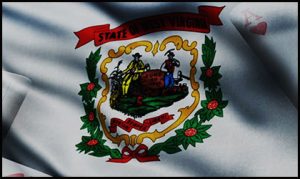In the American state of West Virginia and prominent sportsbook operator FanDuel Group has reportedly failed in an attempt to offer markets concerning who will be elected in November to serve as the nation’s 46th President.
According to a Tuesday report from Legal Sports Report, the New York-headquartered innovator had hoped to become the first provider in the country to offer punters the ability to place legal wagers on the outcome of the upcoming election. This prospect was purportedly heightened yesterday when officials at the West Virginia Lottery approved the operator’s plan to run an online book regarding whether Donald Trump will retain his post as the nation’s principal politician.
Abrupt about-face:
But, Legal Sports Report detailed that this same West Virginia authority reversed its initial decision only two hours later by pronouncing that it believed a member of its staff had ‘jumped before being given an approval.’ This change of heart purportedly put paid to a book that was to have also contained markets on whether a Republican or a Democrat will be the next resident of the White House alongside who may serve as their Vice-President.
Reportedly read a statement from the West Virginia Lottery…
“The markets were initially approved. However, the West  Virginia Lottery has asked FanDuel [Group] to refrain from offering the markets until we have time to fully work through the implications and research it further.”
Virginia Lottery has asked FanDuel [Group] to refrain from offering the markets until we have time to fully work through the implications and research it further.”
Extensive exercise:
The source further explained that the aborted election book from FanDuel Group was to have additionally featured markets on the upcoming identity of the official Democratic nominee for President and offer aficionados the chance to place state-by-state wagers on the winning political party.
Wider uncertainty:
Nevertheless, the revocation raises numerous questions regarding whether such online wagers concerning Presidential elections are even legal. It cited a section of the West Virginia Code as defining bets placed ‘on any election held in this state as being unlawful’ even though many observers believe allowing such markets could actually increase voter turnout.
Reportedly read a statement from Legal Sports Reports’ John Holden…
“Wagering on political markets is explicitly prohibited by statute in a number of states and most states have found it incompatible with public policy in a number of other places. The principal obstacle for wagering on elections in the United States rests at the state level, like with most things in gambling. While some argue that legalized wagering on elections may spur voter turnout, others see it as against the public interest.”



